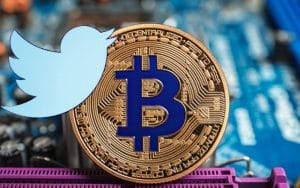Treasury Secretary Janet Yellen embarked on a crucial diplomatic mission to Beijing this weekend, with the aim of promoting effective communication and repairing economic relations between the United States and China. Despite a host of disputes centered around technology, climate change, and national security, this trip lays the groundwork for open and transparent discussions between the world’s largest economies.
Record-Breaking Trade
Amidst the prevailing tensions, it is worth noting that U.S.-China trade reached unprecedented levels last year. This remarkable achievement indicates that there is still significant potential to enhance trade and investment while focusing on areas of shared interest. In a meeting with Chinese Premier He Lifeng on Saturday, Yellen emphasized that the United States does not seek a winner-takes-all approach. Instead, she called for healthy competition under a fair set of rules.
Areas of Contention
As discussions unfold, it remains uncertain to what extent both countries are willing to compromise on various contentious issues. Let’s examine some key areas of contention:
Technology
One crucial focus for the Biden administration is limiting Chinese access to crucial technologies. Advanced semiconductors for artificial intelligence and cloud-computing services are among the targets, which could potentially impact major U.S. chipmakers like Nvidia (ticker: NVDA) and Advanced Micro Devices (AMD), as well as tech giants such as Microsoft (MSFT) and Amazon.com (AMZN).
China’s Export Restrictions and Ban on Micron Technology Products
China has recently announced plans to impose restrictions on the exports of key metals crucial to the semiconductor industry. These metals include gallium and germanium, whose production is dominated by China. In addition, Beijing has placed a ban on Chinese companies using products manufactured by Micron Technology, a leading U.S. memory chips maker, in computers that handle sensitive information.
Climate Finance
Both the United States and China hold the distinction of being the world’s largest greenhouse gas emitters as well as the biggest investors in renewable energy. While China has stated its commitment to assisting poorer nations in addressing climate change challenges and achieving economic transition in a warming world, it has historically been reluctant to contribute to climate funds alongside Western countries. China argues that it is still a developing nation.
In an effort to promote cooperation between the two countries, Treasury Secretary Janet Yellen has called on China to support existing multilateral climate institutions like the Green Climate Fund and the Climate Investment Funds. Yellen emphasizes that collaboration on climate finance is of utmost importance.
National Security Concerns
Beijing has been intensifying its efforts in national security intelligence, increasing pressure on Washington. This was evident in February when the U.S. military intercepted a suspected Chinese surveillance balloon that had drifted above U.S. territory, leading to its downing.
China’s actions in restricting exports and imposing bans, coupled with its focus on national security intelligence, have significant implications both economically and politically. These developments underscore the complex dynamics between the United States and China, as they navigate various challenges in today’s global landscape.
China’s Anti-Espionage Law Raises Concerns for Foreign Companies
The U.S. National Counterintelligence and Security Center issued a bulletin last month, stating, “These laws provide the PRC (People’s Republic of China) government with enhanced legal grounds for accessing and controlling data held by U.S. firms in China.” This warning underscores the apprehension surrounding the potential implications of these regulations.
Crackdown on U.S. Consulting Firms
In recent times, Beijing has begun cracking down on U.S. consulting and due-diligence firms that aid foreign companies in conducting business operations in China. These firms have been targeted as part of China’s efforts to assert control and tighten its grip on foreign involvement within its borders.
Tensions with Taiwan
China has consistently maintained its claim over Taiwan, considering it an integral part of its territory. In the past few years, these tensions have escalated dramatically, particularly with Chinese President Xi Jinping expressing his determination to reunify China and Taiwan. He even stated that he wouldn’t shy away from using force if necessary to achieve this goal. This uncompromising stance by President Jinping has raised concerns and heightened the possibility of a military conflict.
Ambiguous U.S. Policy Towards Taiwan
Despite being seen as an ally to Taiwan, the United States has historically adopted an ambiguous policy regarding the island nation. Washington has refrained from explicitly stating how it would respond in the event of a Beijing invasion, leaving many to speculate about its true intentions.
As China’s anti-espionage law continues to be implemented, foreign companies operating in the country remain vigilant in navigating these new regulations and the potential risks they entail. The uncertain future of relations between China and Taiwan adds an additional layer of complexity, underscoring the need for careful observation and strategic decision-making.
Reimagined Article
Defending Taiwan: President Biden’s Stance
In a recent interview on the CBS “60 Minutes” program in 2022, President Biden seemed to suggest a potential shift in the United States’ policy towards Taiwan. He stated that if China were to initiate “an unprecedented attack,” the U.S. would be willing to send troops to assist in defending Taiwan.
This statement raised eyebrows and sparked discussions about the evolving relationship between the two global powers. However, shortly after President Biden’s comments, the White House swiftly denied any change in the U.S. policy regarding Taiwan.
It is important to note the significance of President Biden’s words and the impact they could have on the geopolitical landscape. The U.S. has long been a staunch supporter of Taiwan, but the level of commitment expressed by the President is noteworthy.
Given the complex dynamics between China, Taiwan, and the United States, this potential shift in policy adds a layer of uncertainty to an already delicate situation. It remains to be seen how these statements will affect diplomatic relations and strategic calculations in the region.


